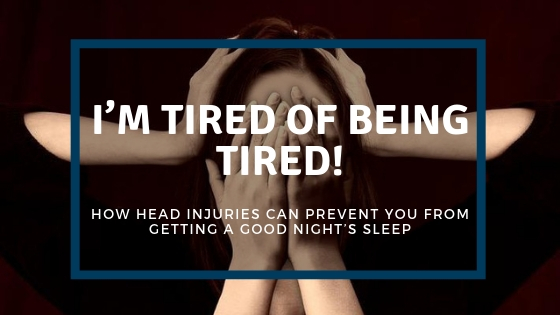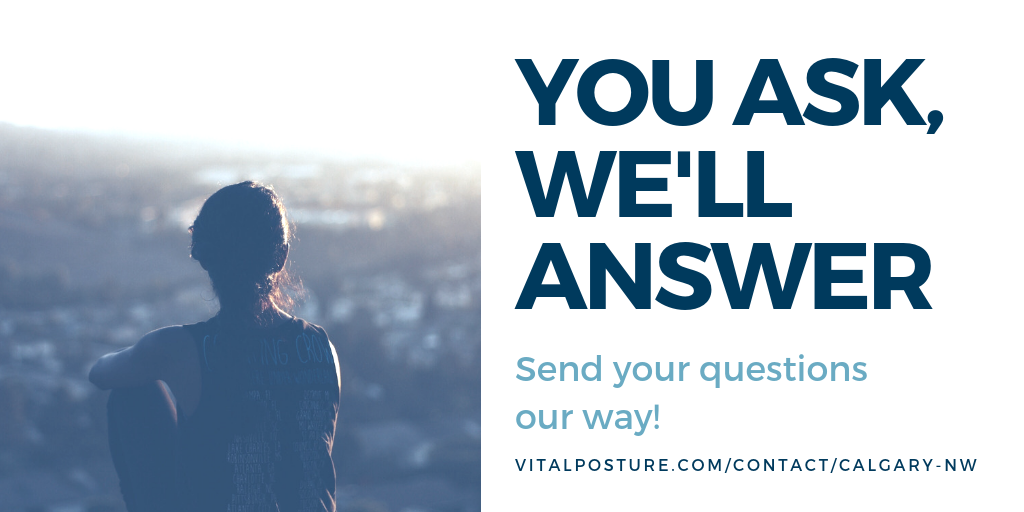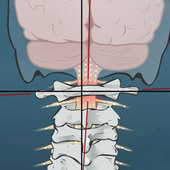Sleep. It’s one of those things people often have a love/hate relationship with. When someone has had a good night’s sleep they often let you know - ‘I had the best sleep ever and am feeling fantastic!’. Likewise, if they’ve had a rough night you can usually tell—perhaps they are not as energetic as usual, a little slower moving, or just plain irritable. Sleep can affect us on multiple levels, from our emotional and cognitive output to how we physically feel and carry ourselves. For people who have suffered a head injury, such as a concussion, sleep disturbance can become a common and excruciating experience.
Sleep disturbance following a concussion is one of the most commonly reported symptoms, and it can affect people for months to years following their injury. Some of the most common sleep complaints following a head injury include insomnia, excessive daytime sleepiness, sleep apnea, and delayed sleep phase syndrome. To truly understand how head injuries can affect your sleep and what you can do about it, we have to dive a little deeper into understanding the chemical soup that surrounds your brain and nervous system.
Molecules of Sleep
Your nervous system—brain, spinal cord, and nerves—is made up of tiny cells call neurons. These cells communicate with one another and the rest of the body using chemicals known as neurotransmitters. Neurotransmitters essentially act as the body’s electrical power by either turning certain processes on (excitatory) or turning them off (inhibitory). When it comes to the sleep cycle, there are certain neurotransmitters responsible for keeping you awake and alert, and others responsible for calming you down and making you feel drowsy. Levels of these neurotransmitters are highly controlled throughout the day by your nervous system.
Other ingredients in this chemical soup include hormones; the chief sleep hormone, melatonin, is produced from the inhibitory neurotransmitter serotonin. Melatonin levels increase during the evening and act as a messaging system to signal the arrival of night. In addition, melatonin has antioxidant effects which act to reduce inflammation and enhance function of the immune system. Melatonin is also very sensitive to light, and its production can be reduced by exposure to blue light in electronic devices.
Concussions and Sleep Disturbance
Concussion injuries create inflammation within the brain which changes the balance of this chemical soup. Often, due to cellular damage following a head injury, there is an increase in excitatory neurotransmitters released and a decrease in production of inhibitory neurotransmitters. This increase in excitatory neurotransmitters can lead to feelings of agitation, restlessness, and anxiety, and it can negatively affect one’s ability to fall and/or stay asleep.In addition, this inflammation triggers our body’s stress response causing elevation of the fight-or-flight hormone, cortisol. Cortisol and melatonin have opposing effects in the body. In normal circumstances, cortisol levels typically begin to increase in the morning hours, causing a reduction of melatonin and getting you ready to start your day. Following a concussion, prolonged increase in cortisol levels can reduce the production of melatonin at night, throwing off the body’s normal sleep-wake rhythm.
What can you do to improve your sleep?
When it comes to concussions and sleep disturbances, early intervention is key. Working with a professional to treat and manage your head injury will help expedite your recovery process and reduce long-term side effects. Some lifestyle changes can also be beneficial in helping you restore your internal balance and set you up for a restful night’s sleep. These include:
- Daytime exercise
- Cutting out processed food and sugar
- Getting fresh air
- Breathing techniques and mediation
- Creating a dark sleep sanctuary
- Avoiding blue light exposure at night
If you are having sleep challenges due to your head injury, ask one of our NUCCA doctors for guidance—we are here to help!

Dr. Michelle Speranza
NUCCA Chiropractor
The Vital Posture™ Clinic
Calgary, Canada





